Melbourne-based Vinod Kumar will compete for his adopted country in the 66 kg-class of Greco-Roman wrestling at the Rio de Janeiro Games, six years after landing Down Under with a suitcase in hand and a head full of troubled childhood memories. Read on to find out more about this wrestler's amazing journey...
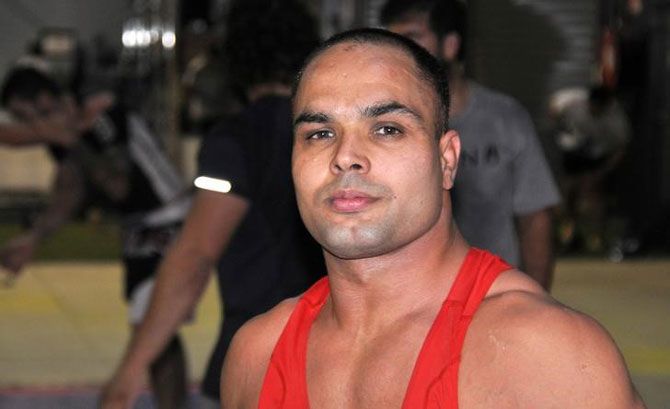
The path to the Olympics is paved with potholes for many athletes but few can claim to have overcome hardship like wrestler Vinod Kumar, who was thrown from a speeding train by a rival's family in India before landing on his feet in Australia.
- Haryana-born wrestler Dahiya to represent Australia at Rio Olympics
Melbourne-based Kumar will compete for his adopted country in the 66 kg-class of Greco-Roman wrestling at the Rio de Janeiro Games, six years after landing Down Under with a suitcase in hand and a head full of troubled childhood memories.
Winning the Olympic ticket was karma, according to Kumar, and a reward for forgiving the people who all but killed him when he was a teenager competing on India's wrestling circuit.
"Wrestling is big in India," the 31-year-old Kumar told Reuters in an interview at his Melbourne home.
"Fathers all want their sons to win... I forgave them because I believe in karma and I believe in God."
Born in a small village near New Delhi and raised in a family of wrestlers, Kumar competed at junior national tournaments across the country from a young age.
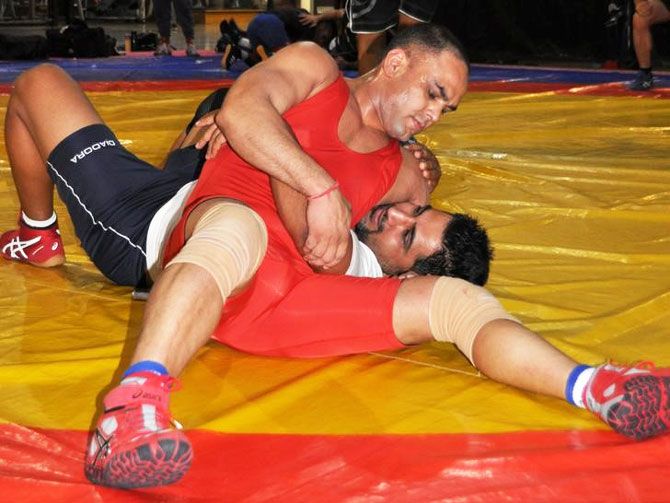
In 2001, he boarded a long-haul train to an event in southern India with other young wrestlers but never arrived.
As the night train coursed through coastal forests in Karnataka, Kumar was handed a spiked soft-drink and immediately felt dizzy after taking a mouthful.
He went groggily to the carriage's doorway to get some air and two men, one the father of a rival wrestler, hurled him from the train before it sped into a tunnel.
Bones were broken in his arms and legs as his body careened off the tracks to settle by a body of water.
"The train was going very fast. Maybe 100-130 kilometres (per hour)," the shaven-headed wrestler said in halting English.
"My clothes were all torn, like I was just wearing my underwear."
Fifteen years later, Kumar lifts up his shirt and trouser leg to show deep scars along his chest and knee but can now chuckle about the absurdity of what happened.
He spent the night conscious and in searing pain, unable to move as mosquitoes bit him and flies buzzed around his wounds.
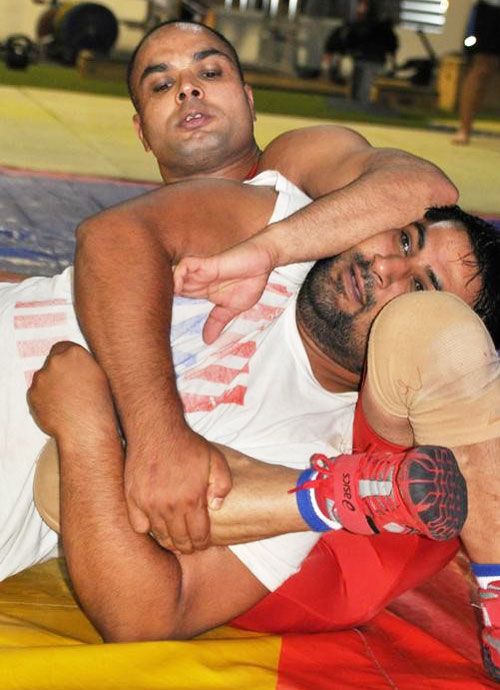
Kumar believes he would have died if he had not been discovered by rail workers in the morning, putting him on another train bound for a hospital that could treat him.
"No one knew where I was for 15 days, everybody thought I was dead," he laughed.
When returned to his family, police arrested five of the men who were on the carriage.
His family launched legal action as Kumar lay bed-ridden for a year. One of his brothers refused a compensation payment from the boy-wrestler's father.
Kumar eventually returned to competition and although he appeared in court "two or three times", the case dragged on for years and he told his family to drop the lawsuit.
His forgiveness was not shared by his family, however, and caused a rift so deep that Kumar left home for good.
He then spent years roaming the country, competing for cash prizes in towns and villages in conventional freestyle events and in 'pehlwani', India's traditional dirt wrestling.
Australia promised a fresh start but it has been tough for Kumar since landing in 2010 with little English and no skills.
With no professional wrestling to speak of in Australia, Kumar has worked as a courier and a bouncer at nightclubs to earn money and says he owes friends up to A$15,000 ($10,800).
Both parents have died since he left India, his mother of a heart attack only two weeks before his interview with Reuters.
"Sometimes I'm feeling very upset, thinking I am here and I have no money, nothing here," said Kumar, sitting on his bed with a clutch of medals hanging by the wall.
"I feel it's too hard here and I want to quit... Then I go to the club (to train) and have a better feeling."
After earning his ticket to Rio in April at a qualifying tournament in Algeria, Kumar feels the grind has been worth it.
Melbourne's prominent Indian community have rallied to his cause and he will head to Brazil hoping to become Australia's first wrestling medallist in more than 60 years.
He said the boy-wrestler's father who threw him from the train is dead and that the man's wife had hanged herself. Their son has not succeeded in wrestling.
"Now he's nothing and I'm an Olympian," Kumar said.
"This is karma."
Image (bottom, left): Wrestler Vinod Kumar (top) spars with another wrestler at a gym in Melbourne
Photograph: Ian Ransom/Reuters




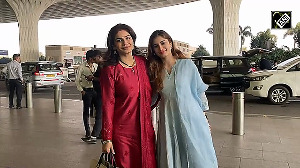
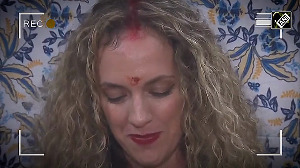
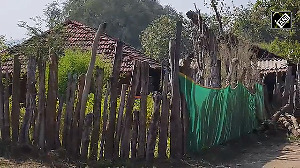

 © 2025
© 2025